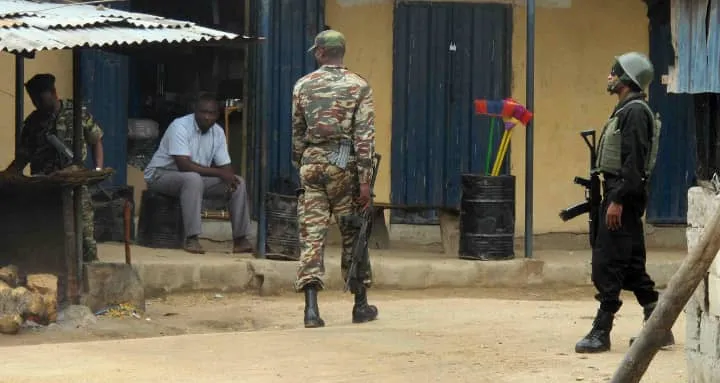The armed conflict in Cameroon’s English- speaking regions has been ongoing for years now. Despite the fighting, humanitarian impact, and loss of lives, one group many seem to forget is that of English- speaking members of the army, a lot of whom have been forced to desert the military or fight against their “brothers”, all deadly options.
Henry (names changed for security reasons) is one of those caught in this tight spot for the past three years now.
The first challenge Henry says they face, is the language. Coming from an English- Speaking background with English Speaking schools, orientation and institutions, he says the language barrier is the first challenge he and every other person of English- Speaking origin face in the armed forces.
“In the military all examinations are written in the French language. Our military law book is also in French” he says.
While this has always been the case, Henry who is over thirty years old says it has gotten worse with the escalation of the Anglophone crisis. “We have been insulted by some of our (French speaking) colleagues, treated as accomplices to the struggle” he says.
In addition to excess work pressure, Henry says it’s not any easier back home with family and friends. “That is the worst problem we are facing now … We are now enemies. They [friends and family] always advice us to leave the work we are doing” says Henry.
Like many other English Speaking soldiers in the Cameroon army, he says, what is stopping him from leaving is the lack of resources and the finance needed to carry out such an action. While little or nothing is being reported on the soldiers that attempt to or do dessert the forces, Henry says it is a daily reality. Some he tells us “have escaped to Nigeria, Dubai, the US and other foreign nations”.
Another reason Henry says he finds it hard to sleep peacefully, is his family. “They are very important to me …” He says, recounting the experience of a colleague whose son was kidnapped by separatist fighters who demanded that guns be provided to secure his release.
“We tried begging those [amba] boys that they should understand that where we are we know the problem even more than they do” says Henry, adding that luckily only money was taken in exchange for the boy.
“With cases like that, someone can do what he is not suppose to do like to take arms and give to them” he adds.
To him, a man serving his nation dutifully should not be forgotten when ith comes to the welfare of the nation. This he explains is however not the case as Anglophone soldiers have been left out of every single aspect relating to the crisis. With the special status recently accorded the English Speaking regions, Henry says they were completely sidelined.
“We expected to be mentioned in the special status but it was not done as if we anglophones don’t exist in the military” he notes.
He goes further to explain that providing English speaking structures in the military will be a good start. ” … Like our own training school where we can learn our animations better. Our military rule book should be written in English too” he says. The pressure he adds is much and “if they can not solve the Anglophones’ problem, … I will be forced to leave.”
Hundreds of soldiers have died in the armed conflict which is now in its fourth year, according to international organisations. Government has not issued official statistics on the number of those affected.
Picture: Archive


